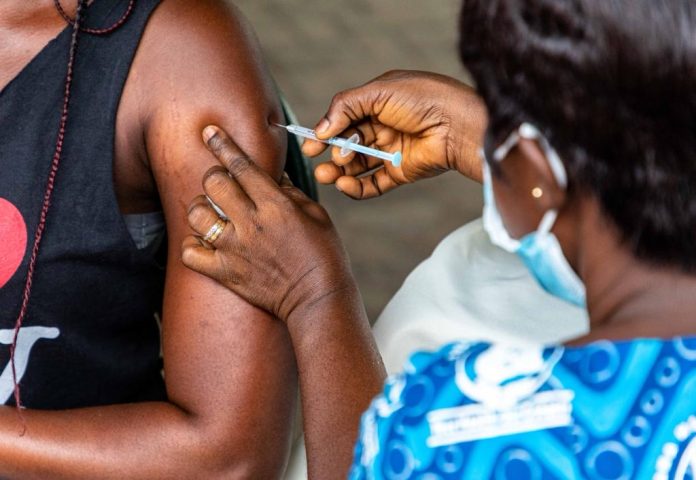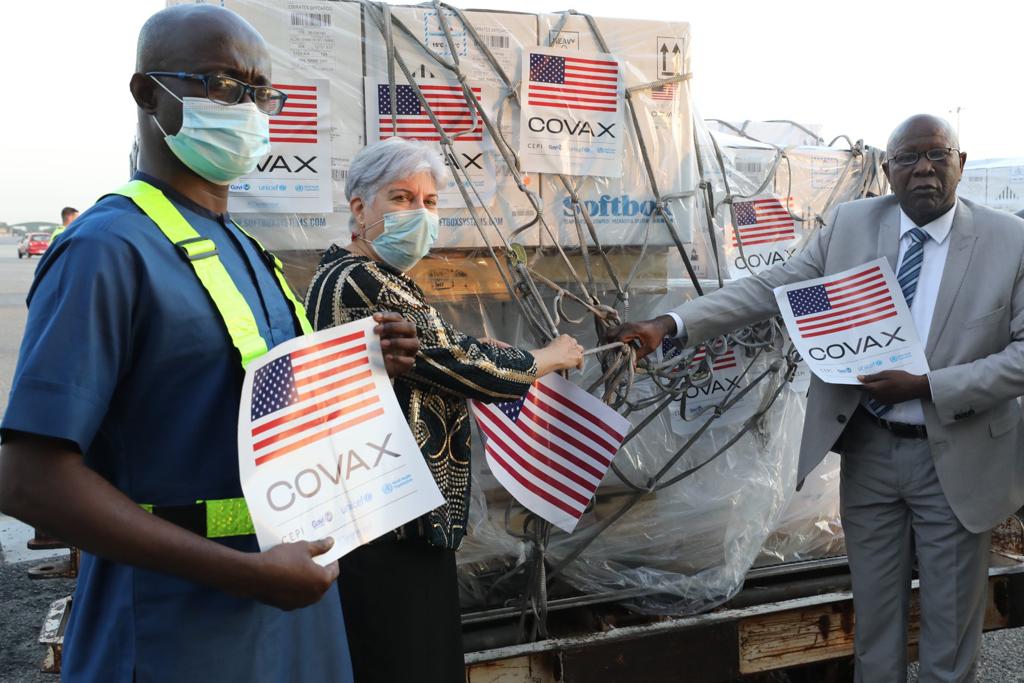|
Getting your Trinity Audio player ready...
|
More than 1.7 million doses of the Pfizer COVID-19 vaccine arrived in Ghana today, bringing the total of U.S. donated vaccines to Ghana to more than 4.2 million doses since September. U.S. Ambassador Stephanie Sullivan was joined by Deputy Minister of Health Mahama Asei Seini, representatives of the Ghana Health Service, Deputy Minister of Foreign Affairs and Regional Integration Kwaku Ampratwum Sarpong, and the UNICEF Country Representative to Ghana Ms. Anne-Claire Dufay, to receive the vaccines at Accra’s Kotoka International Airport.
“These life-saving vaccines, donated on behalf of the American people, will help save Ghanaian lives, as we work together to defeat this virus. These doses are the same safe and effective vaccines used in the United States. There is no better time for Ghanaians to protect their families and communities by getting the jab,” said Ambassador Sullivan.
Delivered through COVAX, the donations are part of the United States’ global efforts to fight the COVID-19 pandemic. In September, President Biden committed to donating 1.1 billion doses of Pfizer COVID-19 vaccine worldwide. The United States Government has already delivered 252 million doses to over 100 countries, including 71 million doses in Sub-Saharan Africa alone. With President Biden’s commitment, the American people are now donating three vaccine doses for every dose that has been administered in the United States.
The United States has strongly supported Ghana’s COVID-19 response efforts, providing more than $30 million for personal protective equipment and training for medical professionals, medical equipment and testing supplies, vaccine distribution planning and support, economic assistance for impacted communities, three new regional Public Health Emergency Operations Centers in Ghana, as well as educational support for Ghanaian students during the pandemic.
This whole of government approach has included elements of the Department of State, Department of Defense, Centers for Disease Control and Prevention, and the U.S. Agency for International Development (USAID).
Source: Daily Mail Gh






